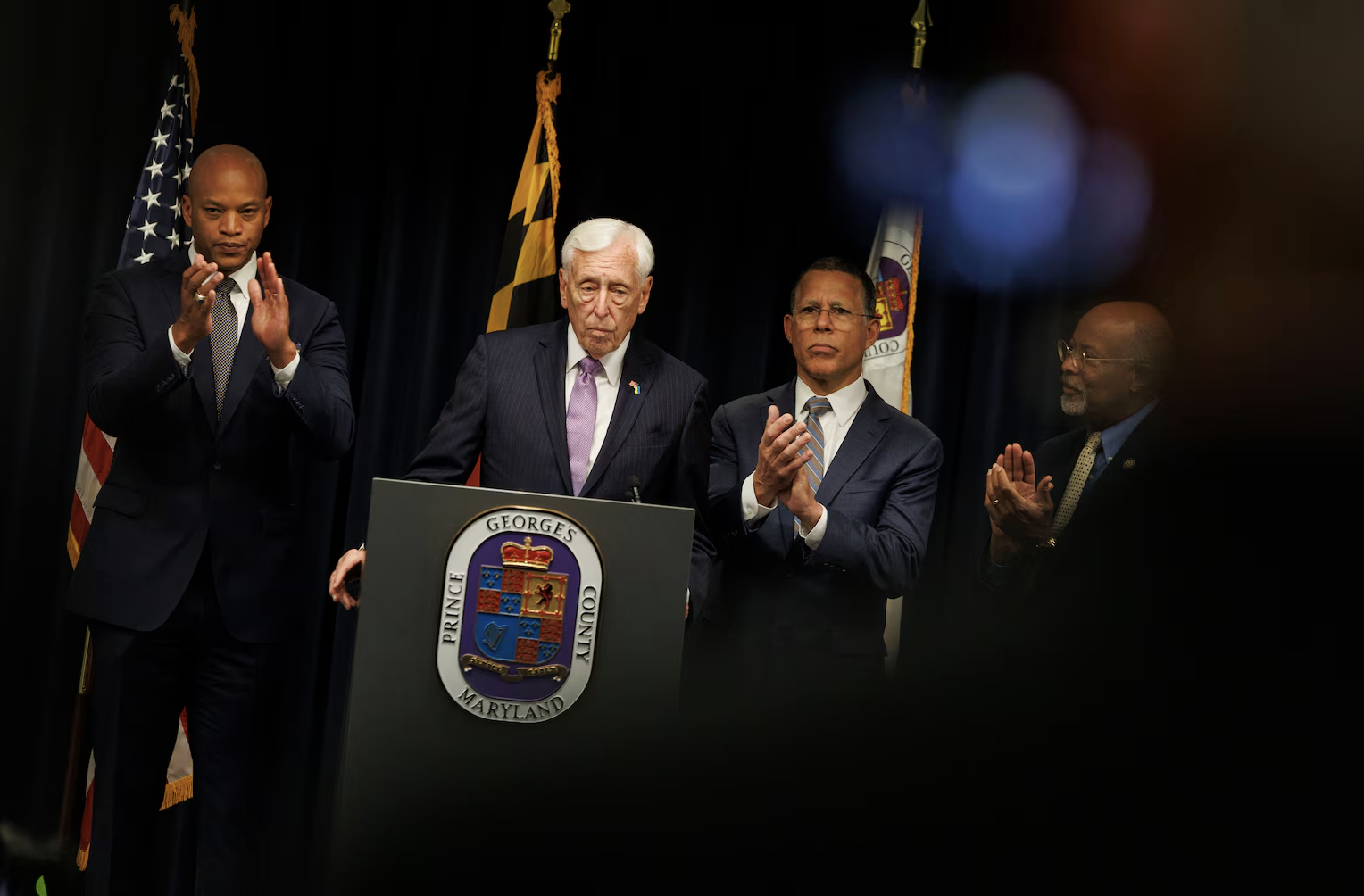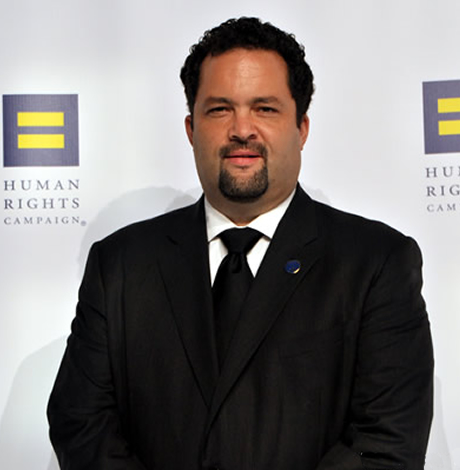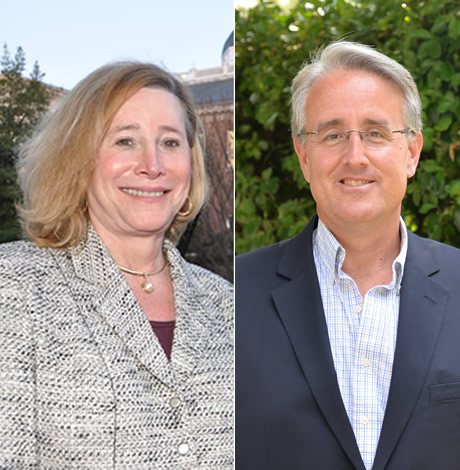Local
Transcript of Madaleno’s speech
Gay Md. state official addresses colleagues Thursday on Senate floor

Following are the remarks that Maryland State Sen. Richard Madaleno (D-Montgomery County), the only gay member of that body, delivered Thursday morning during the second day of debate on a bill that would allow gay and lesbian couples to marry in Maryland.
Thank you, Mr. President. Thank you for your leadership for moving this forward and helping us to have, I think, a very dignified debate in the Senate.
I’m going to start for a moment to remember one of our former colleagues, Gwen Britt, who many of the people in this room served with either in the Senate or the House and to remind people that, in fact, Sen. Britt was going to be the initial sponsor of this bill in 2008 when we introduced it. And it was her untimely death of a heart attack just three days before we were scheduled to introduce this bill that we wound up having to change the sponsorship. Sen. Britt was dedicated to this issue. Sen. Britt’s husband, Travis, in fact, will be submitting testimony tomorrow to the House Judiciary Committee in support of this issue, as he has remained committed. And I didn’t want to have this moment go by without remembering Gwenn Britt and her many contributions to improve the lives in our state and in our country.
I want to thank all of you for this debate and I want to thank the people of Maryland for what I think has been a very reasoned debate about an issue that can be very emotional that does challenge a lot of the beliefs many people have. I certainly appreciate the journey that all of us have been on in the Senate.
You know, this bill is quite simple. It has two parts to it. It reiterates that no religious denomination will ever be required to recognize or perform or bless or celebrate any marriage that is against its beliefs. At the same time, it provides full equality under the law for thousands of same-gender couples in our state, couples like Mark and myself. Many of you know Mark. Many of you have gotten to know him over the years — my partner.
But even using that term partner sounds a little odd. You know, we had a church wedding in our faith. We had a church wedding 10 years ago. We stood with our minister in front of our friends, in front of our family, in front of our community and made a vow to the commitment to each other — the commitment to love each other, to honor, to occasionally obey — to live our lives together. He in my heart is my spouse, even though the laws in the State of Maryland do not say he is — he is my spouse in every sense of the word.
But to the law, he remains a legal stranger to me. He is my partner. I wouldn’t ask any of you to call your spouses your partner because that makes it sound as if he’s your business associate, that your spouse is your business associate and not the person you choose to spend your life with.
Without full and equal civil marriage Maryland makes sure that thousands of its families never forget that they are outsiders, that they are not quite equal. Our state and our nation were founded on principle of fairness and equality. These principles are timeless. Unfortunately, their application has not always been so. Yet every generation of Americans has held out their hand to someone who had been left out of this promise, held out their hand and brought them into our civil society, saying you are not the other, you are us.
That is what this moment is about today. It’s about embracing all of the families of our state.
A few years ago I had a chance to be going on a walk with my daughter. It was a nice spring day and she was picking the little weed flowers that grow — the dandelions, the butter cups, the little flowers that grow on front lawns of people who don’t have time to put weed killer down, right? So she was picking the little flowers that, you know, have the white seed pods. When you blow it the little seeds go flying away. And she handed me one of those flowers and said, “Daddy, will you hold my wishes for me?” I said, “Hold your wishes?” She said, “Yes, my teacher told me this is a wishing flower. When you blow on it you make a wish and you let the wishes fly.”
That to me, in essence, is what parenthood is about. It’s about holding that precious little flower and blowing and seeing it blossom in all sorts of unexpected ways. It is also, I think the extreme honor that we get as members of the legislature to hold those wishes, not just for our family or for ourselves, but for our community.
And there are many people in our state who are wishing for this, whose live will be improved, whose hopes will be realized, whose dreams will become true if we enact this. This will be a memorable day, a memorable day that will improve the lives of thousands of families around our state, thousands of families like my own.
Mr. President, I can’t tell you how much I can’t wait for this debate to end — not today — so I can go back, as my colleague from the 20th District talked about, I can go back to being the boring budget geek that he so kindly recognized me in the Washington Post as being. I can’t wait to get back to the issues that all Marylanders, whether they are straight or gay, black or white, Hispanic — the ones that they want us to work on — the one Maryland issue of jobs and growth, of moving our state forward.
This bill moves our state forward. Other legislation that we will have this year will move our state forward. I am so proud that in Maryland we, as we have from the beginning, look towards toleration and towards the future and embrace of a better future for us all. I urge everyone to consider casting a green vote on this bill. And I once again thank you for your leadership and for the time in the body.
Virginia
Gay Va. State Sen. Ebbin resigns for role in Spanberger administration
Veteran lawmaker will step down in February

Alexandria Democrat Adam Ebbin, who has served as an openly gay member of the Virginia Legislature since 2004, announced on Jan. 7 that he is resigning from his seat in the State Senate to take a job in the administration of Gov.-Elect Abigail Spanberger.
Since 2012, Ebbin has been a member of the Virginia Senate for the 39th District representing parts of Alexandria, Arlington, and Fairfax counties. He served in the Virginia House of Delegates representing Alexandria from 2004 to 2012, becoming the state’s first out gay lawmaker.
His announcement says he submitted his resignation from his Senate position effective Feb. 18 to join the Spanberger administration as a senior adviser at the Virginia Cannabis Control Authority.
“I’m grateful to have the benefit of Senator Ebbin’s policy expertise continuing to serve the people of Virginia, and I look forward to working with him to prioritize public safety and public health,” Spanberger said in Ebbin’s announcement statement.
She was referring to the lead role Ebbin has played in the Virginia Legislature’s approval in 2020 of legislation decriminalizing marijuana and the subsequent approval in 2021of a bill legalizing recreational use and possession of marijuana for adults 21 years of age and older. But the Virginia Legislature has yet to pass legislation facilitating the retail sale of marijuana for recreational use and limits sales to purchases at licensed medical marijuana dispensaries.
“I share Governor-elect Spanberger’s goal that adults 21 and over who choose to use cannabis, and those who use it for medical treatment, have access to a well-tested, accurately labeled product, free from contamination,” Ebbin said in his statement. “2026 is the year we will move cannabis sales off the street corner and behind the age-verified counter,” he said.
Maryland
Steny Hoyer, the longest-serving House Democrat, to retire from Congress
Md. congressman served for years in party leadership

By ASSOCIATED PRESS and LISA MASCARO | Rep. Steny Hoyer of Maryland, the longest-serving Democrat in Congress and once a rival to become House speaker, will announce Thursday he is set to retire at the end of his term.
Hoyer, who served for years in party leadership and helped steer Democrats through some of their most significant legislative victories, is set to deliver a House floor speech about his decision, according to a person familiar with the situation and granted anonymity to discuss it.
“Tune in,” Hoyer said on social media. He confirmed his retirement plans in an interview with the Washington Post.
The rest of this article can be found on the Baltimore Banner’s website.
District of Columbia
Kennedy Center renaming triggers backlash
Artists who cancel shows threatened; calls for funding boycott grow

Efforts to rename the Kennedy Center to add President Trump’s name to the D.C. arts institution continue to spark backlash.
A new petition from Qommittee , a national network of drag artists and allies led by survivors of hate crimes, calls on Kennedy Center donors to suspend funding to the center until “artistic independence is restored, and to redirect support to banned or censored artists.”
“While Trump won’t back down, the donors who contribute nearly $100 million annually to the Kennedy Center can afford to take a stand,” the petition reads. “Money talks. When donors fund censorship, they don’t just harm one institution – they tell marginalized communities their stories don’t deserve to be told.”
The petition can be found here.
Meanwhile, a decision by several prominent musicians and jazz performers to cancel their shows at the recently renamed Trump-Kennedy Center in D.C. planned for Christmas Eve and New Year’s Eve has drawn the ire of the Center’s president, Richard Grenell.
Grenell, a gay supporter of President Donald Trump who served as U.S. ambassador to Germany during Trump’s first term as president, was named Kennedy Center president last year by its board of directors that had been appointed by Trump.
Last month the board voted to change the official name of the center from the John F. Kennedy Memorial Center For The Performing Arts to the Donald J. Trump And The John F. Kennedy Memorial Center For The Performing Arts. The revised name has been installed on the outside wall of the center’s building but is not official because any name change would require congressional action.
According to a report by the New York Times, Grenell informed jazz musician Chuck Redd, who cancelled a 2025 Christmas Eve concert that he has hosted at the Kennedy Center for nearly 20 years in response to the name change, that Grenell planned to arrange for the center to file a lawsuit against him for the cancellation.
“Your decision to withdraw at the last moment — explicitly in response to the Center’s recent renaming, which honors President Trump’s extraordinary efforts to save this national treasure — is classic intolerance and very costly to a non-profit arts institution,” the Times quoted Grenell as saying in a letter to Redd.
“This is your official notice that we will seek $1 million in damages from you for this political stunt,” the Times quoted Grenell’s letter as saying.
A spokesperson for the Trump-Kennedy Center did not immediately respond to an inquiry from the Washington Blade asking if the center still planned to file that lawsuit and whether it planned to file suits against some of the other musicians who recently cancelled their performances following the name change.
In a follow-up story published on Dec. 29, the New York Times reported that a prominent jazz ensemble and a New York dance company had canceled performances scheduled to take place on New Year’s Eve at the Kennedy Center.
The Times reported the jazz ensemble called The Cookers did not give a reason for the cancellation in a statement it released, but its drummer, Billy Hart, told the Times the center’s name change “evidently” played a role in the decision to cancel the performance.
Grenell released a statement on Dec. 29 calling these and other performers who cancelled their shows “far left political activists” who he said had been booked by the Kennedy Center’s previous leadership.
“Boycotting the arts to show you support the arts is a form of derangement syndrome,” the Times quoted him as saying in his statement.
-

 Colombia4 days ago
Colombia4 days agoGay Venezuelan man who fled to Colombia uncertain about homeland’s future
-

 Arts & Entertainment4 days ago
Arts & Entertainment4 days ago2026 Most Eligible LGBTQ Singles nominations
-

 District of Columbia4 days ago
District of Columbia4 days agoKennedy Center renaming triggers backlash
-

 District of Columbia4 days ago
District of Columbia4 days agoNew interim D.C. police chief played lead role in security for WorldPride

















